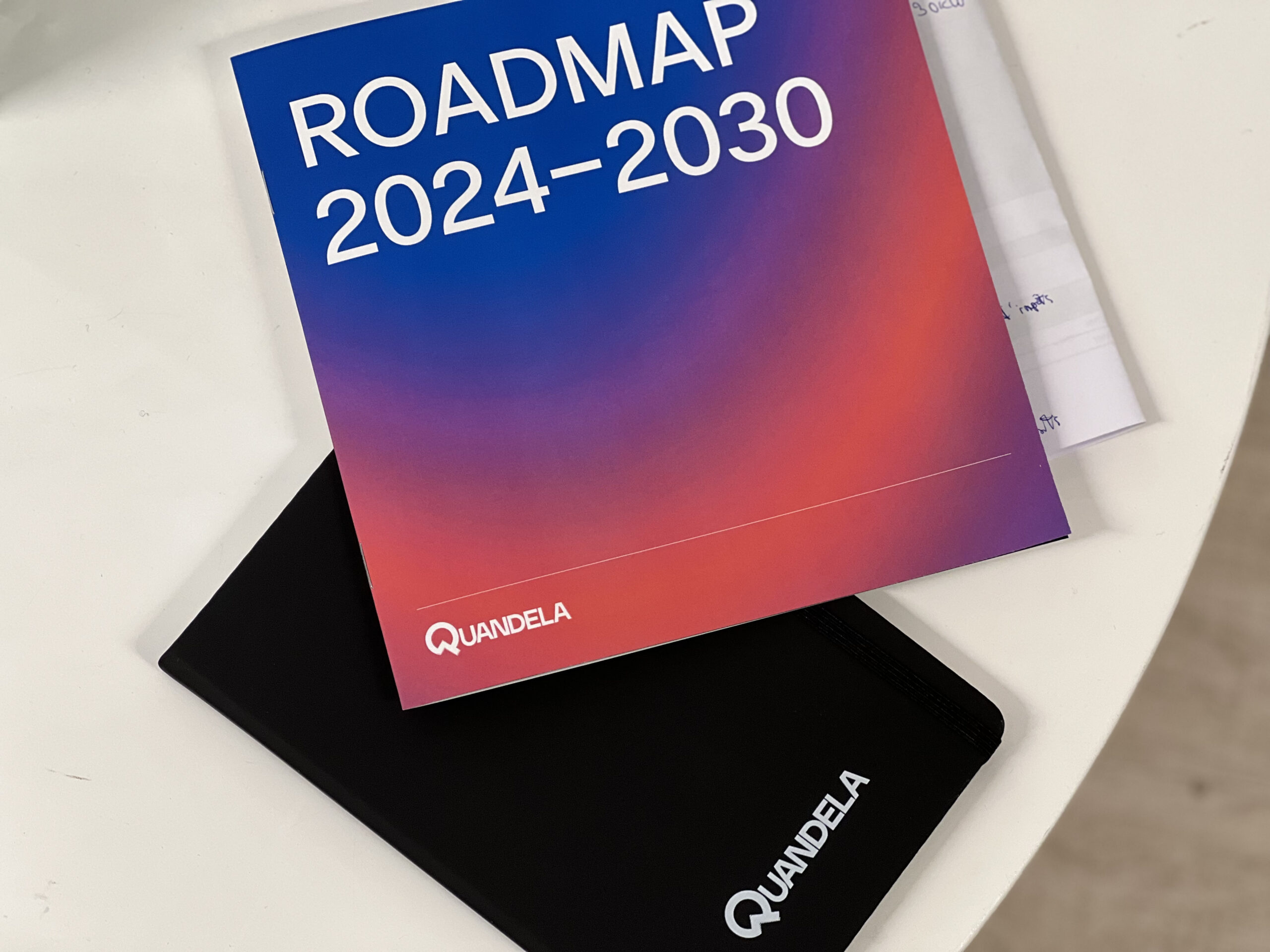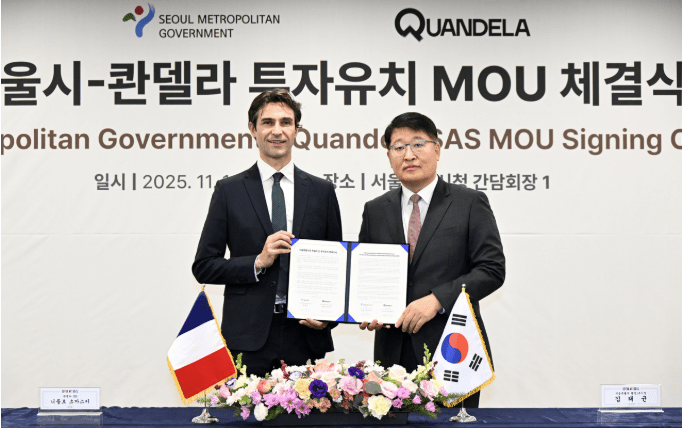- Achieve the first logical qubits by 2025
- Industrialize error-corrected quantum computers by 2030
- Accelerate international expansion in Europe, America, and Asia
Quandela, with its unique approach based on semiconductors and photonics, reveals an ambitious roadmap and an architecture that requires fewer integrated components than competing technologies. Its strategy focuses on developing industrial processes to address tomorrow’s challenges.
Paris, October 11, 2024 – Quandela, the European leader in photonic quantum computing, unveils its ambitions with the publication of its 2024-2030 technology roadmap. The company aims to achieve fault-tolerant quantum computing by 2030. To this end, Quandela intends to reach a major first milestone of achieving the first logical (error-free) qubits in 2025, before accelerating the scaling of quantum computing through quantum networking – connecting multiple quantum computers – by 2028.
A Complete Range of Services Around Quantum Computing
From its inception, Quandela has developed a strategy as a full-stack quantum player, offering a complete range of services to businesses and research communities: production of quantum computers, cloud access, training, and identification of use cases with industries. This ambition is fully reflected in the technology roadmap unveiled by the company, which should lead it to develop industrial processes capable of meeting tomorrow’s technological challenges and business issues by 2030. To achieve this, Quandela can rely on a major advantage of its integrated photonic technology, which is particularly efficient as it requires millions of times fewer components than competing photonic technologies.
Computing Capacity: Towards 50 Logical Qubits in 2028
Quandela’s success depends on increasing the power of its quantum processors, with a 25-fold multiplication (from 400 to 10,000) of quantum operations per second (QOPS). The company, which aims to achieve the first logical (error-free) qubits in 2025, should obtain 50 of them by 2028. By 2030, Quandela aims to operate at the scale of hundreds of logical qubits.
Increased Industrial Capacity with a Second Quantum Computer Factory
In terms of industrialization, Quandela aims to be capable of assembling 4 quantum computers per year starting in 2025, then launch a second quantum computer factory in 2027, before reaching the stage of large-scale assembly of error-corrected quantum computers from 2028.
Supporting Application Developers
For application developers, Quandela aims to launch its general-purpose quantum computing libraries in 2028. In terms of software and algorithms, Quandela intends to boost AI applications by developing QPU-GPU hybridization from 2025, before developing compilers and decoders dedicated to error correction in 2027.
Selected for the Proqcima Program
In spring 2024, Quandela was selected as one of five quantum players for the PROQCIMA program operated by the French Defense Procurement Agency (DGA) as part of the France 2030 program. This program aims to have two French-designed universal quantum computer prototypes by 2032. Quandela is fully confident in its ability to be one of the two companies selected at the end of this multi-year program.
A Roadmap Respected So Far by Quandela
This ambitious agenda is part of a favorable history for Quandela, as the company has so far always met, and sometimes even exceeded, the objectives it set for itself in recent years. Quandela was the first European player to make its quantum computers available in the cloud and to sell and deploy a quantum computer to a private client. The company was also selected in September by the EuroHPC Joint Undertaking to deliver a quantum computer, which will be hosted in France.
“This technology roadmap positions Quandela among the very few global players offering a clear and solid path to the universal quantum computer. The roadmap is ambitious and credible given the objectives already achieved since the company’s founding in 2017, and the excellent performance in the ratio between achieved objectives and deployed financial resources. The agenda unveiled today should allow Quandela, year after year, to ensure its technological and industrial ramp-up in order to perfectly succeed in the quantum transition, which is shaping up to be a strategic and unavoidable issue for companies and even states by the end of the decade,” says Niccolo Somaschi, co-founder and CEO of Quandela.




